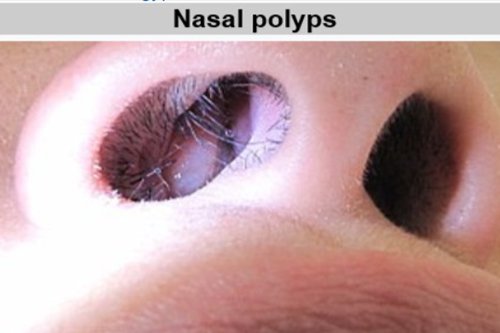Brain and ENT Clinic – Dr Lalit Mahajan In Nagpur & Dr Rachna Gangwani Mahajan In Nagpur
Nasal Polyps

Location: Nasal polyps are commonly found in the nasal passages and sinuses. They can occur on one or both sides.
- Texture: They are typically soft and jelly-like.
Size: They can range in size from small to large, and their presence can lead to congestion and a feeling of fullness in the nose.
Color: Nasal polyps are usually pale or yellowish.
Symptoms of Nasal Polyps
- Persistent stuffiness or congestion
- Reduced or loss of sense of smell
- Postnasal drip
- Runny nose
- Facial pain or pressure
- Snoring
- Frequent sinus infections
Treatment options for Nasal Polyps
Nasal Steroids: These anti-inflammatory medications can help shrink or eliminate nasal polyps and reduce inflammation.
Oral Steroids: In severe cases, a short course of oral steroids may be prescribed to reduce inflammation.
Antihistamines: These medications can help manage symptoms related to allergies.
Surgery: When nasal polyps are large or don’t respond well to medication, surgical removal may be necessary. Endoscopic sinus surgery is a common procedure for this purpose.
Prevent Nasal Polyps
Nasal Irrigation:
- Use a saline solution or a neti pot to regularly irrigate your nasal passages. This can help reduce irritation and remove mucus, potentially preventing the development or recurrence of nasal polyps.
Corticosteroid Nasal Sprays:
- If prescribed by your healthcare provider, use corticosteroid nasal sprays as directed. These can help reduce inflammation in the nasal passages and may prevent the growth of nasal polyps.
Allergy Management:
- Identify and manage any allergies that may contribute to nasal inflammation. This may involve avoiding allergens, using allergy medications, or undergoing allergy immunotherapy.
Avoiding Irritants:
- Minimize exposure to irritants such as tobacco smoke, environmental pollutants, and strong odors, as these can aggravate nasal passages.
Humidification:
- Maintain a comfortable level of humidity in your home, especially during dry seasons. Using a humidifier can help prevent nasal passages from becoming too dry and irritated.
